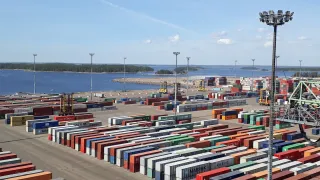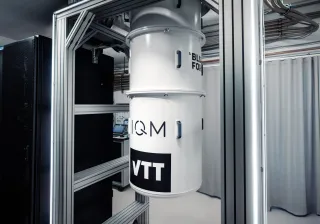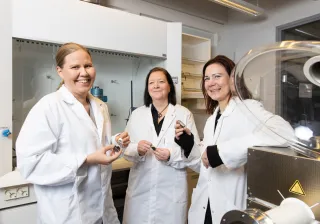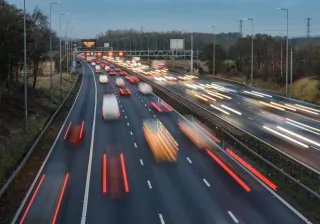The European Union is tightening the obligations related to activities that are harming the environment and the climate, as well as reporting responsibilities of companies. The implementation of the regulations in practice is still partly obscure for many companies, but also for the national authorities, and more detailed directions are still expected from the EU. In the big picture, the driving force is EU's goal of carbon neutrality by 2050, that can’t be achieved by only reducing companies’ own direct emissions. The reduction of the indirect emissions of supply chains are also needed.
From the beginning of 2024, the reporting obligation of large companies will also extend to subcontracting, the so-called Scope 3* emissions, in which the transport and logistics services purchased by the company play a significant role. This creates new challenges for companies in the procurement of services and products, and requires more transparency and focus to the emissions produced by subcontractors than at the moment. Within a few years, the reporting obligation will also apply to small and medium-sized companies. The report must be part of the companies’ annual reports.
The challenge is to find suppliers and services that fulfil sustainability requirements
About 25%** of the emissions generated in the European Union come from transportation.
– Until now, logistics procurement has been completely price-driven, which is understandable from the competitiveness point of view, and considering that the economic importance of indirect procurements is big. Now, due to the regulation, the industry is undergoing a huge change, and this area of business will also be part of the companies’ sustainability review. The biggest challenges will be finding partners and services that support sustainability, and easy execution, says Ville Hinkka, head of VTT's Intelligent supply chains and logistics research team.
VTT is responding to the challenge through the multinational ADMIRAL project, which received over 7 million euro EU funding. In addition to VTT, Awake.AI and Steveco Oy are participating from Finland, with a share of 2.6 million euro in project funding.
– The goal is to create a marketplace where companies can compare the emissions of the subcontracting chain and acquire, for example, services and applications that facilitate port operations. In addition to this, the project includes testing of the digital services across national borders developed by VTT and other partners.
There are twenty-one partners from nine European countries, for example IT companies, logistics companies, a similar research institute as VTT from Portugal, and three universities, explains Hinkka.
A complex topic that affects many levels
It is important that companies understand the requirements of both, sustainability and reporting, and commit to making them an integral part of their operations.
– However, the most critical thing in the early stages is that low-emission logistic services would be easily available, and it would be possible to compare services consistently to support sustainable procurement decisions. Our strength and contribution at VTT are in understanding the "systemic change" related to climate change and in supporting this change impartially. Changing the direction towards greener supply chains and procurement processes requires concrete new technological innovations to be successful, but also the dispelling of practices and thinking that have been established over the years. Such a challenging and interdisciplinary topic, and a project closely related to it, are a great fit for us, says Harri Pyykkö, senior scientist at VTT and coordinator of the ADMIRAL project.
When transport and logistics companies feel that they get competitive advantage by offering low-emission services and value for their green investments, it is to be expected that total emissions will start to decrease rapidly.
* Briefly: Scope 1 includes the company's direct emissions, Scope 2 emissions come from purchased energy, and Scope 3 from indirect emissions, such as procurement, distribution and business travel.
** Transport and the Green Deal
@ADMIRAL_EU
#ADMIRAL project
VTT that coordinates the international ADMIRAL project, is also responsible for the coordination of the pilots in the project, and is leading the part related to research of sustainable transport services. In addition, VTT is developing a solution for an automated train cargo unloading based on artificial intelligence and machine learning.
Awake.AI is a Turku-based company founded in 2018 that develops digital marketplaces, especially for port environments, to support the exchange of information between different parties in the supply chain. In the ADMIRAL project, Awake.AI is responsible for the development of the digital marketplace, and also supporting VTT and the technology companies in the project, so that the solutions they are developing would be compatible with the marketplace.
Steveco Oy is Finland's leading port operator and market leader in the transport of Finnish forest industry products and transit traffic. In the ADMIRAL project, Steveco tests the solution developed by VTT in the port of HaminaKotka, and also strives to decrease its Co2 load and to develop transparency related to emissions.








